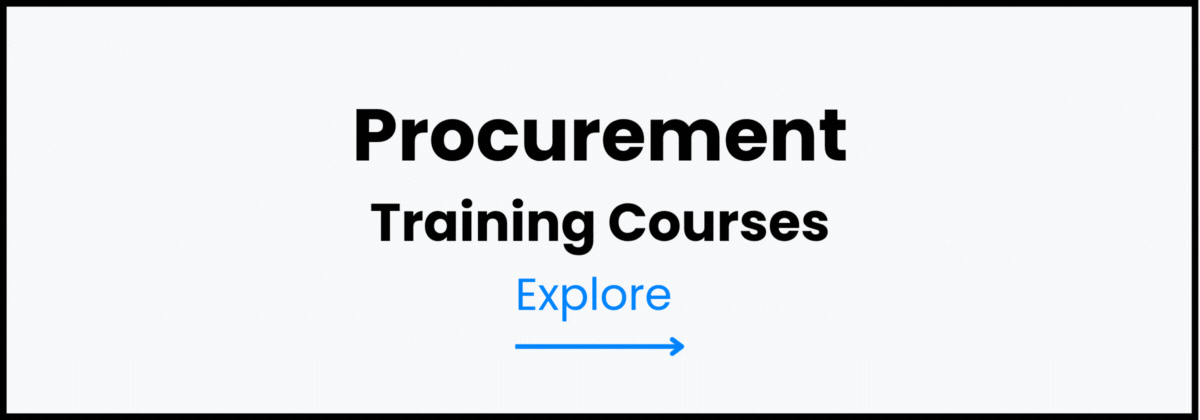How Compliance Influences Corporate Procurement Processes
Procurement has evolved from a cost-focused function into a strategic pillar of corporate governance. As supply chains grow more complex and global, the procurement function must not only deliver value and efficiency but also ensure that every action taken adheres to a growing web of laws, regulations, and ethical standards. This is where compliance plays a vital role.
Compliance in procurement refers to the adherence to internal policies, industry standards, and regulatory requirements during the sourcing, contracting, and supplier management process. It encompasses everything from anti-corruption laws and trade regulations to environmental standards and corporate social responsibility.
Organizations that ignore procurement compliance risk reputational damage, financial penalties, and supplier disputes. On the other hand, those that embed compliance into their procurement processes benefit from increased transparency, stronger supplier relationships, and long-term value creation.
To build a compliance-first procurement culture, professionals can develop their capabilities through focused training such as the Best Practice and Principles of Procurement Course, which offers foundational frameworks for compliant and strategic sourcing.
What Does Compliance Mean in Corporate Procurement?
In procurement, compliance is a multi-dimensional concept that touches every stage of the purchasing lifecycle. It includes:
- Regulatory Compliance: Adhering to local and international laws (e.g., anti-bribery, trade sanctions, data protection)
- Contractual Compliance: Ensuring suppliers fulfill their contractual obligations
- Policy Compliance: Aligning procurement actions with internal procurement policies and approval hierarchies
- Ethical Compliance: Preventing corruption, favoritism, or discriminatory practices
- Sustainability and ESG Compliance: Meeting environmental, social, and governance standards
These aspects of compliance are not only mandatory for legal and financial integrity but also form the basis of ethical and responsible procurement operations. They are particularly important in international sourcing, a topic thoroughly explored in the Global Sourcing Strategy & Smart International Procurement Course.
How Compliance Shapes Procurement Processes
Let’s explore how compliance influences each key stage of the procurement process, ensuring that risks are minimized and outcomes are optimized.
-
Supplier Pre-qualification and Onboarding
Compliance begins before a purchase order is even created. During supplier onboarding, procurement teams must:
- Verify business registration and legal status
- Conduct background checks for fraud, litigation, or sanctions
- Request compliance documents (e.g., ISO certifications, tax records)
- Ensure alignment with ESG policies and ethical sourcing standards
These steps ensure that only qualified and trustworthy vendors enter the supply chain, thereby reducing risk exposure.
Courses like the Public Procurement Law Course equip procurement professionals with the legal knowledge needed to vet suppliers effectively and avoid procurement violations.
-
Tendering and Bid Evaluation
A fair, transparent tender process is a hallmark of compliant procurement. Procurement teams must:
- Define clear and non-discriminatory selection criteria
- Disclose evaluation methods upfront
- Prevent conflicts of interest during the bid process
- Document every decision for audit purposes
Failure to follow these principles can result in bid protests, legal disputes, or disqualification from public and private procurement frameworks.
Learning how to embed compliance in tender documentation and evaluation is a core element of the Best Practice and Principles of Procurement Course.
-
Contract Negotiation and Award
Contracts must reflect not just commercial terms but also legal obligations and risk controls. Compliance at this stage includes:
- Ensuring terms comply with trade, labor, and tax laws
- Including anti-corruption clauses and confidentiality agreements
- Aligning delivery timelines and payment terms with applicable regulations
- Reviewing contracts for clauses that could violate competition or anti-trust laws
Professionals can strengthen their negotiation and contracting capabilities through the Negotiating and Contracting in Procurement & Supply Course, which focuses on aligning commercial goals with legal and compliance requirements.
-
Supplier Relationship and Performance Management
Ongoing compliance must be monitored throughout the supplier relationship. This involves:
- Conducting periodic audits and compliance reviews
- Tracking adherence to agreed KPIs and SLAs
- Responding to non-compliance incidents with corrective actions
- Ensuring data protection practices comply with frameworks like GDPR
The integration of compliance into supplier management fosters accountability and reduces the likelihood of contract breaches or reputational harm.
The Business Benefits of a Compliance-Focused Procurement Strategy
When properly embedded, procurement compliance delivers far more than regulatory protection. It creates a foundation for:
Risk Reduction
Compliance processes identify and address legal, financial, and operational risks before they escalate into costly issues.
Increased Efficiency
Clear procurement policies and standardized documentation reduce delays and confusion during purchasing activities.
Supplier Accountability
Compliance mechanisms such as audits and performance reviews hold suppliers to higher standards, encouraging consistent delivery and ethical conduct.
Competitive Advantage
In industries where transparency and corporate responsibility are valued, compliance differentiates organizations as reliable partners.
Regulatory Protection
A robust compliance framework minimizes the risk of penalties, lawsuits, or disqualification from government tenders or international partnerships.
Common Compliance Risks in Procurement and How to Avoid Them
Despite best efforts, compliance violations in procurement remain common. Key risk areas include:
- Bribery or facilitation payments to secure contracts
- Bid rigging or collusion among vendors
- Unethical supplier practices, such as labor violations or environmental damage
- Inadequate record keeping during the procurement cycle
- Data protection breaches, particularly in digital procurement systems
These risks can be mitigated through:
- Strong procurement policy enforcement
- Staff training and awareness
- Internal audits and whistleblower mechanisms
- Due diligence during supplier selection
Understanding how to develop anti-corruption safeguards is especially relevant for professionals working in regulated or public sectors—making the Public Procurement Law Course an essential learning tool.
The Rise of Compliance in Global Sourcing
As companies source goods and services globally, the compliance landscape becomes even more complex. Procurement professionals must navigate:
- Trade sanctions and export control laws
- Country-specific labor and environmental regulations
- Currency controls and anti-money laundering policies
- Cross-border tax compliance and transfer pricing
A minor oversight in one region can lead to major legal complications across multiple jurisdictions. This is why international procurement now demands both technical sourcing skills and robust compliance understanding.
Training like the Global Sourcing Strategy & Smart International Procurement Course addresses this dual requirement, helping teams build resilient, globally compliant supply chains.
Embedding Compliance Culture in Procurement Teams
Creating a compliance-oriented procurement function isn’t just about policies—it’s about people. A culture of compliance requires:
- Leadership commitment to integrity and accountability
- Ongoing staff training to stay updated with evolving laws
- Open communication for reporting concerns or violations
- Cross-functional collaboration with legal, finance, and audit teams
Procurement staff at all levels should understand not just how to follow rules, but why those rules matter. Professional development through structured Procurement Courses enables individuals and teams to build this compliance mindset.
Role of Technology in Supporting Procurement Compliance
Modern procurement platforms increasingly support compliance through features such as:
- Automated approval workflows aligned with internal policies
- Contract templates with pre-approved legal clauses
- Audit trails and documentation logs for every procurement action
- Sanctions and watchlist screening of potential suppliers
- Alerts for regulation changes or policy violations
However, even the most advanced tools are only effective when used by trained professionals. Investing in compliance-focused training ensures that procurement teams use these technologies responsibly and effectively.
Compliance Is a Strategic Asset in Procurement
Compliance is not a constraint—it is a strategic enabler. When embedded into every layer of the procurement process, it protects organizations from legal, reputational, and financial risks. It also enhances transparency, promotes ethical behavior, and strengthens stakeholder trust.
The increasing complexity of global supply chains, regulatory environments, and stakeholder expectations means that procurement professionals must be more than negotiators—they must be guardians of compliance.
Whether you’re developing sourcing strategies, negotiating contracts, or managing public tenders, courses like the Best Practice and Principles of Procurement Course, Negotiating and Contracting in Procurement & Supply Course, and Public Procurement Law Course provide the tools, frameworks, and confidence to lead with compliance.
Explore:





